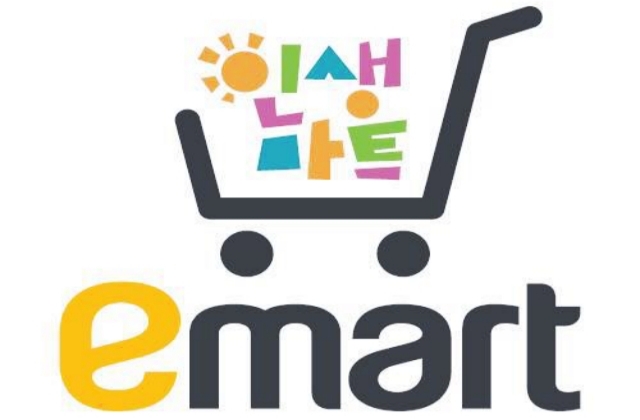Emart, the South Korean grocery chain, has been slapped with a hefty fine for its unfair business system. It was revealed that the country’s antitrust regulator said on Sunday, March 14, that it has decided to penalize the super supermarket (SSM) division of Emart Inc. after concluding its investigation.
The case that led the regulators to fine Emart
Emart is the largest discount store chain in S. Korea, and it was checked by the regulators after receiving complaints. As per The Korea Herald, the company’s Emart Everyday store returned the seasonal products that it was not able to sell.
Based on the record of the Korea Fair Trade Commission (KFTC), the suppliers said that goods such as ice boxes and sunscreen were purchased from them between January 2015 and January 2018. However, a total of 157,000 unsold ones were returned to 15 different suppliers which is an unreasonable thing to do.
The act is very unfair since Emart just passed the inventory costs of the unsold goods to the suppliers. The KFTC affirmed that this practice is a violation of the fair trade act on large retail businesses. This policy prohibits big retail companies from returning the purchased items without valid reasons.
And this is not all, as it was reported that Emart Everyday was also discovered to have other unjust business systems. The company has engaged in unlawful activities appertaining to its temporary workers and contracts with suppliers. Apart from the fine, the regulators ordered Emart to correct its wrongdoings that violated the republic’s Large-scale Distribution Business Act.
The FTC will monitor big retailers for the same offenses
As per Korea’s Aju News, the way Emart returned the goods clearly went against the government policy on large-scale businesses. What the company did placed a heavy burden on the suppliers since it will be them who will suffer from the losses.
Although there are instances when companies can return products from suppliers, this is only applicable to small businesses, and Emart is clearly not considered as a minor grocery store. Finally, to avoid similar cases and protect small-time suppliers, the Fair Trade Commission assured that it would continuously keep an eye on illegal business moves.
“We will continue to monitor large-scale retailers for unfair trade practices, such as improperly transferring costs to suppliers during the Corona 19 crisis,” the FTC stated.



 Flare, Xaman Roll Out One-Click DeFi Vault for XRP Yield via XRPL Wallets
Flare, Xaman Roll Out One-Click DeFi Vault for XRP Yield via XRPL Wallets  Panama Investigates CK Hutchison’s Port Unit After Court Voids Canal Contracts
Panama Investigates CK Hutchison’s Port Unit After Court Voids Canal Contracts  Boeing Secures $166.8 Million U.S. Navy Contract for P-8A Engineering and Software Support
Boeing Secures $166.8 Million U.S. Navy Contract for P-8A Engineering and Software Support  Qantas Shares Plunge 10% as Iran Strikes Send Oil Prices Soaring and Disrupt Global Flights
Qantas Shares Plunge 10% as Iran Strikes Send Oil Prices Soaring and Disrupt Global Flights  FAA Plans Flight Reductions at Chicago O’Hare as Airlines Ramp Up Summer Schedules
FAA Plans Flight Reductions at Chicago O’Hare as Airlines Ramp Up Summer Schedules  Trump Warns Iran as Gulf Conflict Disrupts Oil Markets and Global Trade
Trump Warns Iran as Gulf Conflict Disrupts Oil Markets and Global Trade  Nintendo Share Sale: MUFG and Bank of Kyoto to Sell Stakes in Strategic Unwinding
Nintendo Share Sale: MUFG and Bank of Kyoto to Sell Stakes in Strategic Unwinding  Paramount Skydance to Acquire Warner Bros Discovery in $110 Billion Media Mega-Deal
Paramount Skydance to Acquire Warner Bros Discovery in $110 Billion Media Mega-Deal  Australia Targets AI Platforms With Strict Age Verification Rules
Australia Targets AI Platforms With Strict Age Verification Rules  Anthropic Refuses Pentagon Request to Remove AI Safeguards Amid Defense Contract Dispute
Anthropic Refuses Pentagon Request to Remove AI Safeguards Amid Defense Contract Dispute  Hyundai Motor Group to Invest $6.26 Billion in AI Data Center, Robotics and Renewable Energy Projects in South Korea
Hyundai Motor Group to Invest $6.26 Billion in AI Data Center, Robotics and Renewable Energy Projects in South Korea  FCC Approves Charter Communications’ $34.5 Billion Acquisition of Cox Communications
FCC Approves Charter Communications’ $34.5 Billion Acquisition of Cox Communications  AWS Data Center in UAE Hit by Fire After Objects Strike Facility Amid Regional Tensions
AWS Data Center in UAE Hit by Fire After Objects Strike Facility Amid Regional Tensions  Coupang Reports Q4 Loss After Data Breach, Revenue Misses Estimates
Coupang Reports Q4 Loss After Data Breach, Revenue Misses Estimates  Middle East Airspace Shutdown Disrupts Global Flights After U.S.-Israel Strikes on Iran
Middle East Airspace Shutdown Disrupts Global Flights After U.S.-Israel Strikes on Iran  APEX Tech Acquisition Inc. Raises $111.97 Million in NYSE IPO Under Ticker TRADU
APEX Tech Acquisition Inc. Raises $111.97 Million in NYSE IPO Under Ticker TRADU  OpenAI Hires Former Meta and Apple AI Leader Ruomin Pang Amid Intensifying AI Talent War
OpenAI Hires Former Meta and Apple AI Leader Ruomin Pang Amid Intensifying AI Talent War 































